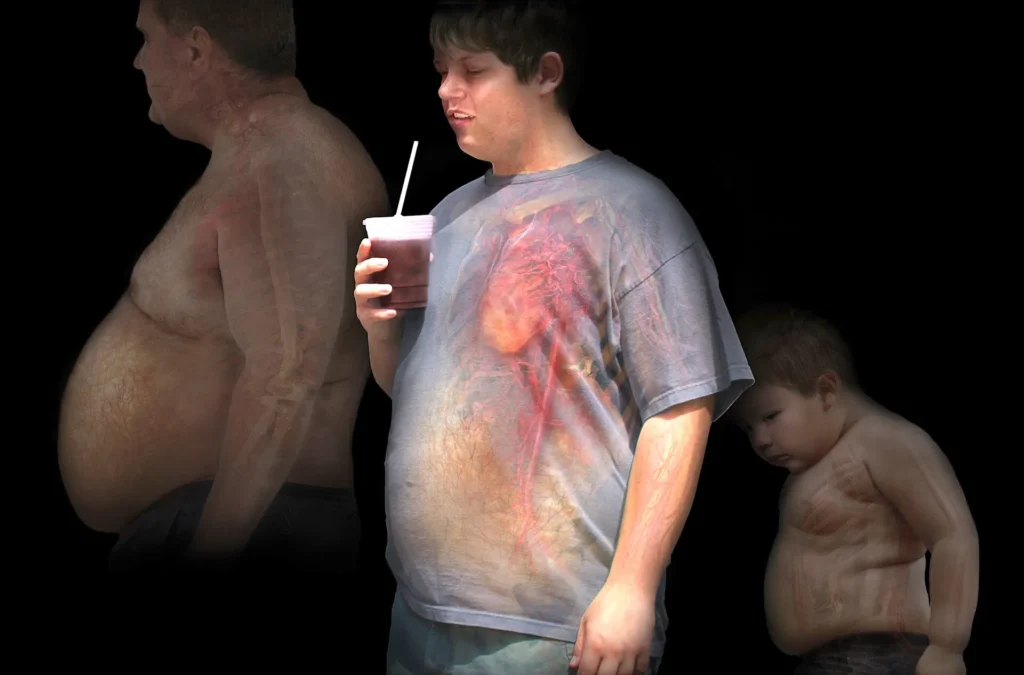
In a world increasingly obsessed with weight loss breakthroughs, a quietly remarkable story has emerged—one that starts not with Hollywood diets or influencer fads, but with a box of raisins and a frightened mother. When 10-year-old Dean Shenk devoured a 20-ounce box of raisins in mere seconds, his family raced to the emergency room, fearing a fatal bowel impaction. For his mother, Ali Foley Shenk, the incident wasn’t just terrifying—it was heartbreakingly ironic.
As a baby, Dean couldn’t suck or swallow. Diagnosed with Prader-Willi syndrome (PWS), a rare genetic disorder, he survived only with feeding tubes. For years, he barely showed interest in food. Then came the switch.
“It’s crazy,” Foley Shenk said from her home in Richmond, Virginia. “All of a sudden, they flip.”

What Is Prader-Willi Syndrome?
Affecting up to 20,000 people in the U.S., Prader-Willi syndrome is one of the most baffling and devastating rare diseases. It starts in infancy with low muscle tone and poor feeding. But as children age, it transforms into a nightmare of insatiable hunger, a condition known as hyperphagia. Families install locks on fridges and cupboards. Garbage cans are chained shut. Security cameras become necessary not to prevent theft or intruders but to monitor their children’s desperate hunt for food. Tragically, some individuals with PWS have died from stomach rupture after binge-eating.
For years, the only sanctioned treatment was growth hormone therapy, which addressed stature and muscle tone—but not hunger. That changed in March, when the FDA approved Vykat XR, a groundbreaking new medication aimed directly at controlling the most dangerous symptom of Prader-Willi: unrelenting hunger.
Inside the Science: How Vykat XR Works
Developed by Soleno Therapeutics, Vykat XR is an extended-release version of diazoxide choline, a compound that calms overactive neurons in the hypothalamus responsible for releasing neuropeptide Y (NPY)—a chemical that screams hunger, even when the body is full.
“In most people, if you stop secreting NPY, hunger goes away,” explained Anish Bhatnagar, Soleno’s CEO. “In Prader-Willi, that off switch doesn’t exist. It’s literally your brain telling you, ‘You’re starving,’ as you eat.”
While GLP-1 drugs like Ozempic and Wegovy mimic gut hormones to induce satiety, they’ve shown little effectiveness in PWS patients. Vykat XR, however, is rewriting that narrative.

A Game-Changer in Real Life: Dean’s Transformation
For Dean Shenk, the effects were nothing short of miraculous. His anxiety about food dropped. Cupboards no longer had to be locked. His lean muscle mass quadrupled, body fat declined, and the compulsive skin-picking—another symptom tied to food anxiety—vanished.
“Before the drug, it just felt like a dead end. My child was miserable,” said Foley Shenk. “Now, we have our son back.”
Dr. Jennifer Miller, a pediatric endocrinologist at the University of Florida who co-led the clinical trials, said Dean is far from alone. She’s treated over 600 PWS patients and calls the drug’s impact “life-changing.”
“Some of my adult patients are now going to college, getting jobs, even living independently,” she said. “It opens up their world in so many ways.”
A Medical Breakthrough in Jeopardy
Despite its promise, the future of obesity research—including treatments like Vykat XR—is under threat. Under the Trump administration, federal funding for medical discovery is shrinking. University labs face steep cuts, FDA staff are being laid off, and biotech progress—like the partnership that birthed Vykat XR—is increasingly at risk.
“That whole thing is likely to get disrupted now,” warned Theresa Strong, research director for the Foundation for Prader-Willi Research.
Even as HHS officials claim support for rare disease research continues, many in the field report key personnel leaving agencies and rumours of research groups contemplating moves to Europe. The fragile infrastructure that supports orphan disease innovation is teetering on the edge.

The Price of Hope
While Vykat XR isn’t a cure, it offers something rare and invaluable to families dealing with Prader-Willi syndrome: a chance at normalcy. But that chance comes at a steep price. At an average annual cost of $466,200, Vykat XR ranks among the most expensive rare-disease drugs in the U.S. Soleno Therapeutics has promised “minimal” copayments and currently provides the drug free to trial participants, but broad insurance coverage is still pending. Despite the cost, the potential benefits are drawing attention from both patients and investors. Following the FDA’s green light, Soleno’s stock surged 40%, and the company now sits at a valuation of nearly $4 billion.
Unlocking the Puzzle of Obesity
Researchers are hopeful that Vykat XR’s success could be more than a singular victory. It might provide a roadmap for understanding—and treating—the wider epidemic of obesity, which affects over 40% of U.S. adults.
“Understanding how more targeted therapies work in rare genetic obesity helps us better understand the brain pathways behind appetite,” said Dr. Jesse Richards, director of obesity medicine at the University of Oklahoma-Tulsa.
Indeed, Vykat XR is part of a broader shift in thinking: obesity is not a single disease. As Dr. Jack Yanovski of the NIH noted, “It only makes sense that it’s complex to treat.”
Obesity’s causes span genetic, environmental, and behavioral factors. GLP-1 drugs have proven ineffective for some people—up to 15% of trial participants showed no benefit. In contrast, therapies like Vykat XR target specific neurological signals, opening doors to new treatments.
On the Horizon: What’s Next?
The success of Vykat XR is fueling a wave of research. Acadia Pharmaceuticals and Aardvark Therapeutics are leading two additional phase 3 trials, each exploring different molecular pathways involved in Prader-Willi syndrome.
And while political headwinds threaten future research, hundreds of trials on general obesity are still recruiting participants, signaling a vibrant—if precarious—pipeline of innovation.

Life Beyond Hunger
For Dean, now 16, life is no longer consumed by the hunger that once ruled his every thought. He’s attending a special education program, hanging out with friends, watching “American Ninja Warrior,” and even developing a healthy appreciation for avocados. His narcolepsy and cataplexy remain, but his quality of life has dramatically improved.
What’s most striking isn’t just the reduction in symptoms, but the emotional shift.
“He’s more social, happier, calmer,” said Foley Shenk. “He can actually focus on school and friendships instead of food. That’s something we never thought possible.”
In a nation grappling with an obesity crisis, breakthroughs like Vykat XR remind us that behind each diagnosis is a person—a child like Dean—whose story goes beyond the scale. As research races forward and funding hangs in the balance, one thing is clear: tackling the complexity of hunger is about more than science. It’s about restoring dignity, freedom, and the simple joys of living.